UK and Argentina agree to identify Falklands war dead
Two countries will work together to name more than 100 Argentinians killed in 1982 conflict
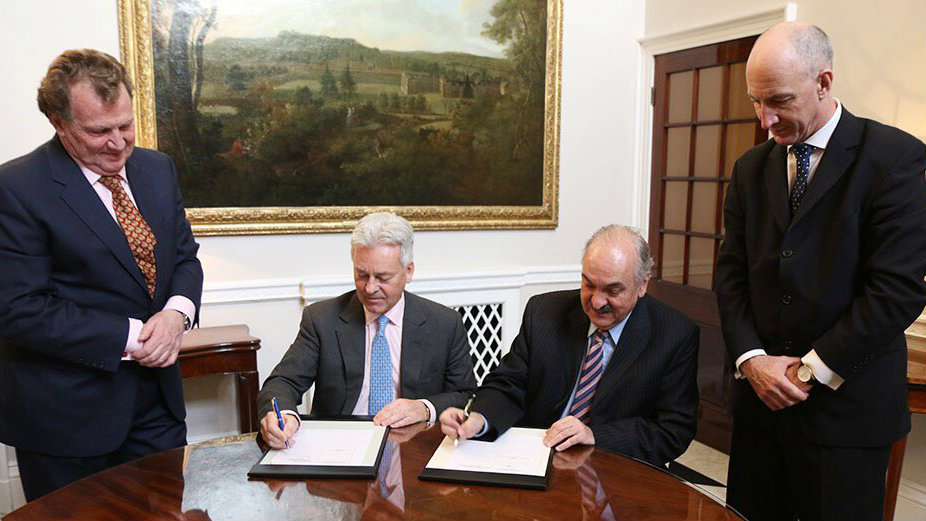
A free daily email with the biggest news stories of the day – and the best features from TheWeek.com
You are now subscribed
Your newsletter sign-up was successful
Argentina accuses Cameron of 'irate' reaction in Falklands row
12 June 2014
Argentina has accused Prime Minister David Cameron of bad manners after a row over the Falkland Islands broke out at a European Union summit.
Cameron reportedly stepped in to defend Britain's claim on the islands after Argentina's foreign minister Hector Timerman urged the EU to support his country's fight against the "colonialist" British.
The Week
Escape your echo chamber. Get the facts behind the news, plus analysis from multiple perspectives.

Sign up for The Week's Free Newsletters
From our morning news briefing to a weekly Good News Newsletter, get the best of The Week delivered directly to your inbox.
From our morning news briefing to a weekly Good News Newsletter, get the best of The Week delivered directly to your inbox.
During a dinner in Brussels, where more than 60 EU and Latin American leaders met to discuss trade links, Timerman condemned the drilling by UK companies for oil and gas off the disputed South Atlantic islands.
"Extracting natural resources that belong to the Argentine people is totally illegal," he said. "Colonialism still persists, relying on the logic of appropriation of natural resources."
In a move designed to "delight" voters back home, Timerman told Cameron that the islands belonged to Argentina, reports the Daily Telegraph.
According to Argentine media reports, he said his government expected countries from the EU to support a United States resolution that urges Argentina and the UK to open a dialogue over the disputed territory.
A free daily email with the biggest news stories of the day – and the best features from TheWeek.com
In a heated exchange, Cameron apparently ordered Timerman to stop "threatening" the people of the Falklands and to "respect" the referendum in which islanders overwhelmingly voted to remain a British Overseas Territory.
Later, Argentinian President Cristina Fernandez de Kirchner described the Prime Minister's response as "irate, almost ill-mannered".
A spokesman for Cameron defended his intervention as "clear and robust".
He added: "It is completely unacceptable of Argentina to be threatening companies looking to invest in the Falkland Islands or in the waters surrounding there."
No direct mention was made of the 1982 war, in which 659 Argentinians and 258 Britons died after Buenos Aires invaded the islands.
Argentina: 'UK should remove troops from Falkland Islands'
29 October 2014
Argentina has called on Britain to wind down its military operations on the Falklands, insisting that it will not invade the islands.
Daniel Filmus, Argentina's special secretary for the Falklands, said Britain should withdraw troops from the South Atlantic territory, as it has done in Afghanistan.
"There is absolutely no chance of another invasion from the mainland," he said. "We as a nation – the government, the senate, the house of representatives – have repeatedly stated that we do not seek a military solution; all we want is a dialogue to resolve our differences."
Filmus, a close friend of President Cristina Fernandez de Kirchner, said it was "extraordinary" that with so many conflicts going on around the world, the British government does not want to hold talks.
"Instead they have the garrison there and have created one of the most militarised zones in that part of the world," he said.
Britain's base houses 1,200 military personnel and costs £90m a year to maintain, says The Independent. Its assets also include Rapier surface-to-air missiles, Royal Navy ships, RAF Typhoon jets and support aircraft.
The Week columnist Robert Fox pointed out yesterday that Argentina plans to acquire 24 Saab Gripen fighter-bombers, its first major purchase of new military aircraft since the Falklands War. Fox said the new aircraft will be "more than a match" for Britain's present defences in and around the Falkland Islands.
Tensions resurfaced in the region two years ago when Prince William was deployed to the islands and the UK sent a new warship, HMS Dauntless, provoking anger in Argentina. Last year, Falklands residents voted to remain part of Britain in a referendum.
The islands, known to Latin America as Las Malvinas, were invaded by Argentina in 1982 – a war that cost more than 900 Argentine and British lives.
Falklands War 2? Argentina’s new fighters a serious threat
By Robert Fox
28 October 2014
Argentina’s announcement that it plans to acquire 24 Saab Gripen fighter-bombers caused scarcely a ripple in the headlines last week, and so far has produced no reaction from Whitehall.
It should. The purchase calls the bluff on Britain’s current stance on the Falkland Islands. This is the first major purchase of new military aircraft by the Argentine government since the Falklands War 32 years ago.
Buying the Gripen shows serious intent. It is more capable than any aircraft the RAF currently deploys – and could match anything the RAF is likely to have in five to eight years’ time, which is when the Fuerza Aerea’s new attack planes are expected to become fully operational.
The plan to buy the new generation of the highly successful Swedish-designed Gripen aircraft was revealed by Argentina’s defence minister Agustin Rossi on 21 October during a visit to Brazil. In a joint press conference with his Brazilian counterpart he said the details “are to be worked out over the next four months”.
But it is already clear that the terms of the deal are of a global interest that goes far beyond the Falklands dispute.
The 24 aircraft destined for Argentina are being tacked on to an order for 36 Gripen for Brazil’s air force. That contract, due to be signed by December, involves a joint venture between Saab of Sweden – the plane’s original designer and manufacturer – and Embraer of Brazil, who will make a number of airframes.
Argentina now intends to be part of that joint venture, and is setting up a production line to make parts for the aircraft. At a later stage, Argentina and Brazil say they hope to develop the new advanced twin-seater version of the Gripen. They expect to find markets in Ecuador, Paraguay and Uruguay.
In other words, the partnership between Saab and Embraer aims to produce a Latin American advanced fighter for Latin American markets.
The Gripen is a highly agile single-seater fighter which proved itself in the air operations over Libya in 2011. “It was good to fly, reliable and easy to maintain – it was the automatic second choice for the allied air forces, barring the best of what their own nations had,” the RAF commander in the Mediterranean, Air Vice Marshal Edward Stringer, told me.
Brazil, which has a well developed civil and military aircraft industry of its own, chose the Gripen in preference to France’s Dassault Rafale and the US Boeing F18 Super Hornet. (Neither the Bae Typhoon nor the American Lockheed Martin F-35 reached the final round.)
The Gripen comes in several variants, including one for aircraft carriers, which raises the question – why was it not chosen for the two new Royal Navy aircraft carriers instead of the hideously expensive Lockheed Martin F-35 whose costs are still soaring?
For Argentina, the new aircraft will be more than a match for the present defences in and around the Falkland Islands. These consist of between four and five older-model Typhoon air defence fighters, and four or five Rapier air defence missile batteries, much like the ones that were first landed on the islands during fighting in 1982.
The garrison consists of a large company group of soldiers, and two or three hundred members of the RAF. The Navy has two inshore patrol vessels, with a frigate and a nuclear attack submarine visiting occasionally.
For Britain, it will be tough to beef up the Falklands defences at a time of increasing budget cuts: the Treasury has just informed the Ministry of Defence that it will be seeking a further 7.5 per cent cut in next year’s defence review.
The Tories are virtually committed to such a cut if they are re-elected next May. Yet the defence of the Falklands is part of the Margaret Thatcher hagiography and iconography. A Tory leader who bargains away sovereignty, allowing the Falklands to morph to the Malvinas, would be in trouble with the party, even today.
But it may be out of the hands of any British prime minister, whoever he or she may be, because Britain is more likely to be even more isolated than it was in 1982 if it comes to another scrap in the South Atlantic.
In 1982 Argentina was a military dictatorship with a terrible human rights record. Today democratic Argentina has the broad support of its Latin American allies, especially Brazil.
Nor is any present or future US administration guaranteed to back Britain in a further spat with Argentina. In 1982, remember, some in the Reagan administration such as his UN ambassador Jean Kirkpatrick sympathised with Argentina.
American indifference - or worse - could matter in one crucial respect. In eight years’ time, when our principal advanced strike aircraft will be the Lockheed Martin F-35, the US will be vital for maintenance of these aircraft, including the management of critical software codes.
All of this should be a warning to the UK government to start doing something to resolve the Falklands issue with due haste – before it becomes another victim of Cameron’s foreign policy philosophy: just in time, but never just good enough.
Margaret Thatcher and the Falklands: the pros and cons
19 June 2014
Margaret Thatcher's three terms as Prime Minister brought enormous change to the UK. An objective assessment of her greatest achievements (and failures) isn't easy – opinions are still divided. But there is some consensus on her legacy.
The Falklands War:
The 1982 war was one of the most controversial episodes of the Thatcher era. Her decision to send a task force to the South Atlantic - against the advice of many in her inner circle - earned the enduring gratitude of the islanders, who celebrate Thatcher Day every 10 January. At home, victory was marked with ticker-tape parades in London and Portsmouth. Much more importantly, it led to the landslide election victory of 1983.
The Big Bang:
The Big Bang was a wave of deregulation that blew away the "fusty" world of stock broking and ushered in the UK's globally competitive financial services sector. It was a "hugely significant reform that cemented the City of London's place as Europe's biggest financial centre and led it to challenge New York for global hegemony," says The Times. "The changes allowed international banks like Goldman Sachs to step in and attracted a river of foreign business," says Fox News.
Privatisation:
In her memoirs, Thatcher describes privatisation as "fundamental to improving Britain's economic performance". It also "chimed with her political ideology," says the Daily Telegraph. During her times as PM more than 50 state-run companies were sold or privatised – including dozens from the power and water industries – raising more than £50 billion for the Exchequer.
Education reform:
Many people remember Thatcher as the Education Secretary who "snatched" free milk from 7 to 11 year olds. But her education legacy is more positive than that, says The Independent. Her Education Reform Act was responsible for introducing a national curriculum, setting up the Office for Standards in Education (Ofsted), bringing in regular school inspections and allowing schools to manage their own budgets. "She was responsible for many of the reforms now being built upon by the current Education Secretary, Michael Gove," says The Independent.
Helping end the Cold War:
Thatcher stood shoulder-to-shoulder with President Reagan to install cruise missiles in Europe and resist Soviet expansionism. According to former Soviet leader Mikhail Gorbachev, his relationship with Thatcher "helped bring change and tear down the Iron Curtain". They first met in 1984. "In the end, we were able to achieve mutual understanding, and this contributed to a change in the atmosphere between our country and the West and to the end of the Cold War," he told Reuters yesterday.
The Right-to-Buy scheme:
Thatcher's decision to allow council tenants to buy the properties they lived in at a discount was smart politics because it "converted thousands of Labour voters into Conservatives". More than 1.25 million people signed up to the scheme which added £18 billion to government coffers. On the downside, the scheme depleted the stock of social housing.
Forcing the Labour Party to the right:
When Thatcher was asked to name her greatest achievement she reportedly said: "New Labour". The former PM defeated Labour at three elections and forced the party "to drag itself into the modern world" by supporting "market forces; privatisation; reform of employment laws and lower taxation for individuals and business".
Scepticism towards Europe:
Thatcher initially supported membership of the European Community. Later, however, she "passionately fought and won a number of battles against what she saw as the excessive powers of Brussels," says the BBC. The Independent says she "shocked other European leaders with her handbag-swinging negotiating style". But her hostility towards Europe also sowed the seeds of her destruction. Her opposition to the Exchange Rate Mechanism (a precursor of the single currency) and other, as she saw it, threats to British sovereignty, triggered the resignations of Thatcher stalwarts Chancellor Nigel Lawson and Foreign Secretary Geoffrey Howe, and eventually led to her own downfall.
The poll tax:
The Community Charge (popularly known as the poll tax) was a single flat-rate per-capita tax on every adult, introduced in Scotland in 1989 and England and Wales in 1990. Critics said the shift from a tax based on the value of a house to a tax based on the number of people living in it, discriminated against the less well off. Large numbers of people refused to pay and the tax triggered violent riots, notably the pitched battle between police and rioters in Trafalgar Square on Saturday, 31 March, 1990. The hated tax was abolished in 1993.
An international commission has ruled that Argentina'sterritory should be expanded to include the waters surrounding the FalklandIslands, in a move that is likely to inflame tensions with Britain.
The islanders voted overwhelmingly to remain British in a2013 referendum, but the UK and Argentina continue to battle over sovereigntymore than three decades after they went to war.
[b] Who made the ruling?
A group of experts known as the Commission on the Limits ofthe Continental Shelf, established under the 1982 United Nations convention onthe law of the sea but not a UN commission, as the BBC [1] points out.
[b] What has theresponse been?
Argentina hailed the decision as an "historicoccasion", with foreign minister SusanaMalcorra saying it "reaffirms our sovereignty rights over the resources ofour continental shelf".
The Falklands legislative assembly, meanwhile, said it wasattempting to contact the UK government to find out "what, if any,decisions have been made and what implications there may be".
Chairman Mike Summers added: "Our understanding hasalways been that the UN would not make any determination on applications forcontinental shelf extension in areas where there are competing claims."
Downing Street has played down the ruling, saying it had not yet received details of the report.
"It's important to note this is an advisory committee. It makes recommendations; they are not legallybinding and the commission doesn't have jurisdiction to consider sovereigntyissues," said Prime Minister David Cameron's spokesperson.
[b] What does the ruling mean for the future?
The move would increase Argentina's waters in the SouthAtlantic by 35 per cent, the equivalent of more than half a million squaremiles.
"It leaves a question mark over natural resources inthe South Atlantic, in particular oil exploration, which is already pumpingmillions of dollars into the Falkland Islands economy," says [2] TheTimes.
The decision is also unlikely to improve diplomaticrelations between London and Buenos Aires.
Argentina says the ruling will be key in its dispute withBritain over the islands, but Downing Street once again insisted the decisionlies with the Falkland Islanders.
"They have been very clear that they want to remain anoverseas territory of the UK and we will continue to support their right todetermine their own future," it said.
[1] http://www.bbc.co.uk/news/business-35914839
[2] http://www.thetimes.co.uk/tto/news/world/americas/article4723629.ece
-
 The mystery of flight MH370
The mystery of flight MH370The Explainer In 2014, the passenger plane vanished without trace. Twelve years on, a new operation is under way to find the wreckage of the doomed airliner
-
 5 royally funny cartoons about the former prince Andrew’s arrest
5 royally funny cartoons about the former prince Andrew’s arrestCartoons Artists take on falling from grace, kingly manners, and more
-
 The identical twins derailing a French murder trial
The identical twins derailing a French murder trialUnder The Radar Police are unable to tell which suspect’s DNA is on the weapon
-
 How corrupt is the UK?
How corrupt is the UK?The Explainer Decline in standards ‘risks becoming a defining feature of our political culture’ as Britain falls to lowest ever score on global index
-
 The high street: Britain’s next political battleground?
The high street: Britain’s next political battleground?In the Spotlight Mass closure of shops and influx of organised crime are fuelling voter anger, and offer an opening for Reform UK
-
 Is a Reform-Tory pact becoming more likely?
Is a Reform-Tory pact becoming more likely?Today’s Big Question Nigel Farage’s party is ahead in the polls but still falls well short of a Commons majority, while Conservatives are still losing MPs to Reform
-
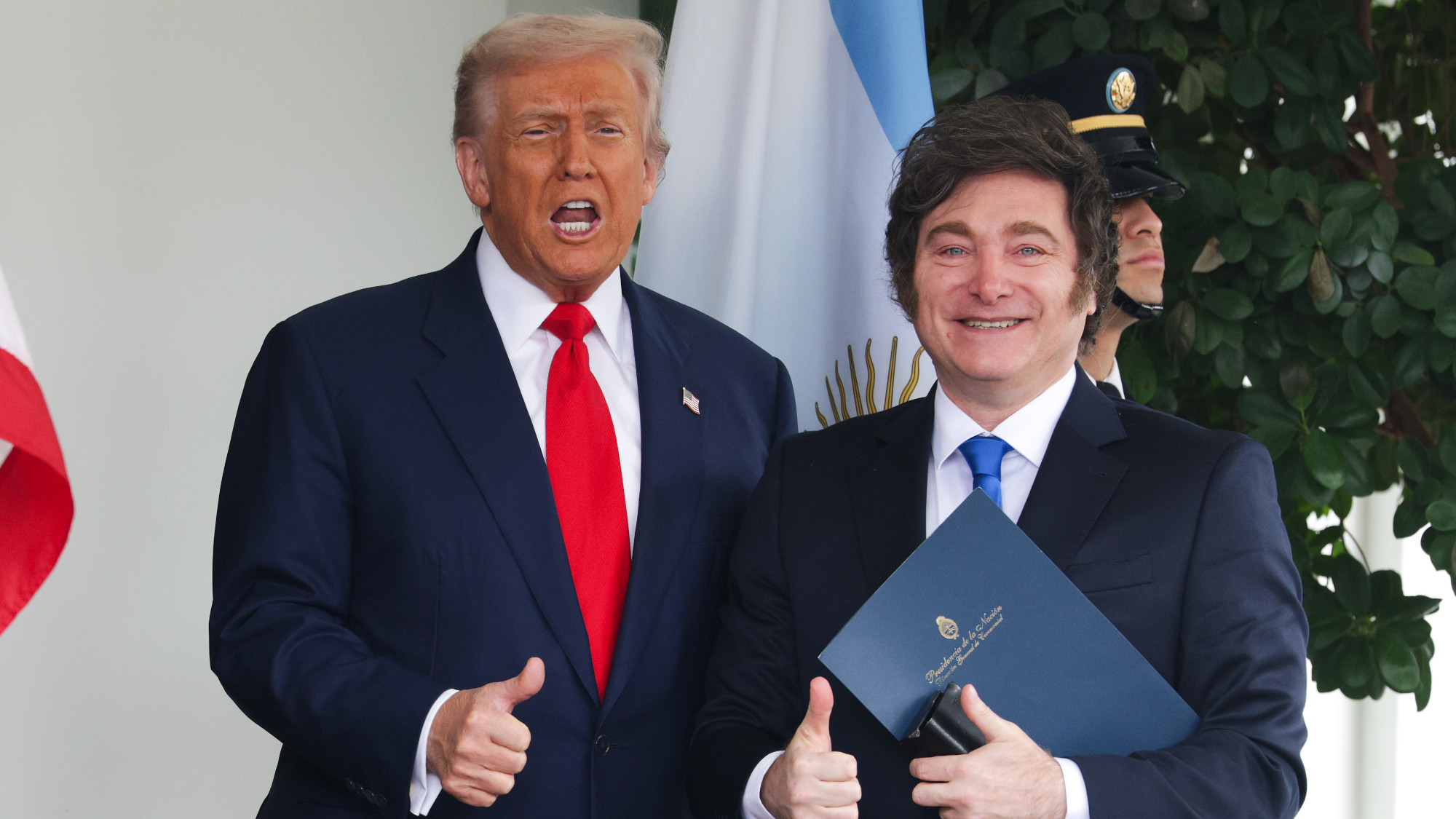 Bailouts: Why Trump is rescuing Argentina
Bailouts: Why Trump is rescuing ArgentinaFeature The White House approved a $20 billion currency swap with Argentina
-
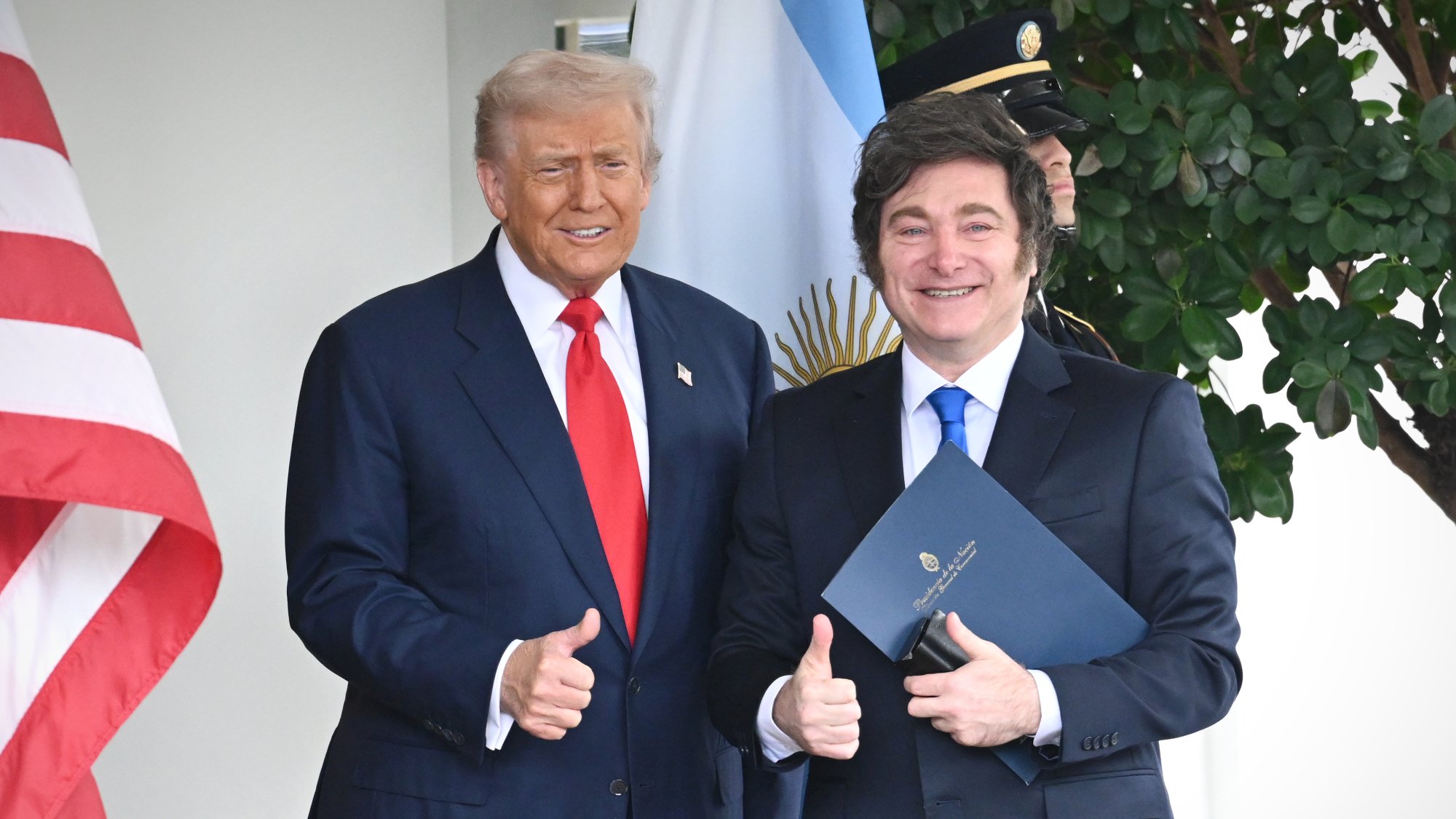 Trump ties $20B Argentina bailout to Milei votes
Trump ties $20B Argentina bailout to Milei votesspeed read Trump will boost Argentina’s economy — if the country’s right-wing president wins upcoming elections
-
 Taking the low road: why the SNP is still standing strong
Taking the low road: why the SNP is still standing strongTalking Point Party is on track for a fifth consecutive victory in May’s Holyrood election, despite controversies and plummeting support
-
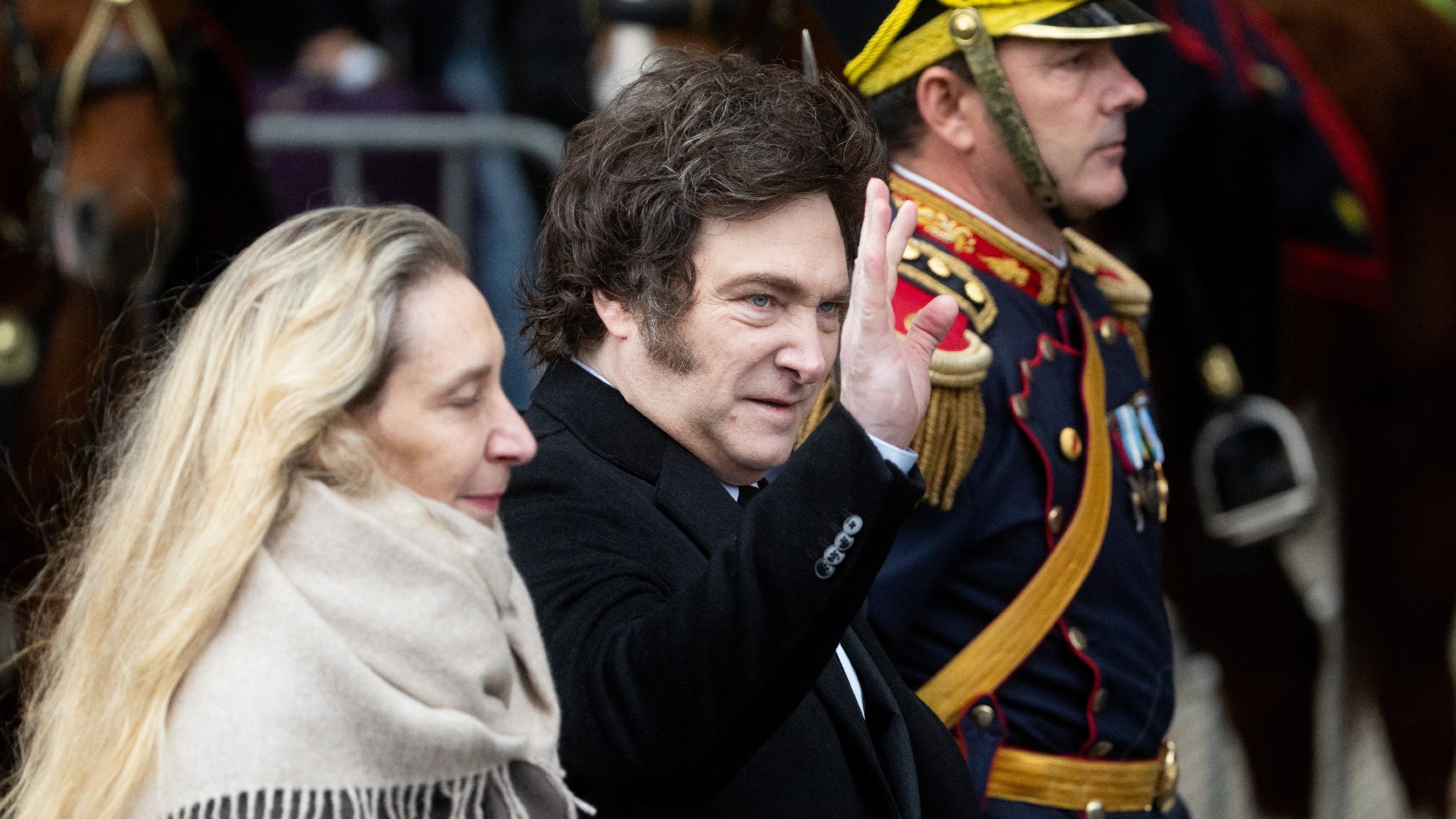 Under siege: Argentina’s president drops his chainsaw
Under siege: Argentina’s president drops his chainsawTalking Point The self-proclaimed ‘first anarcho-capitalist president in world history’ faces mounting troubles
-
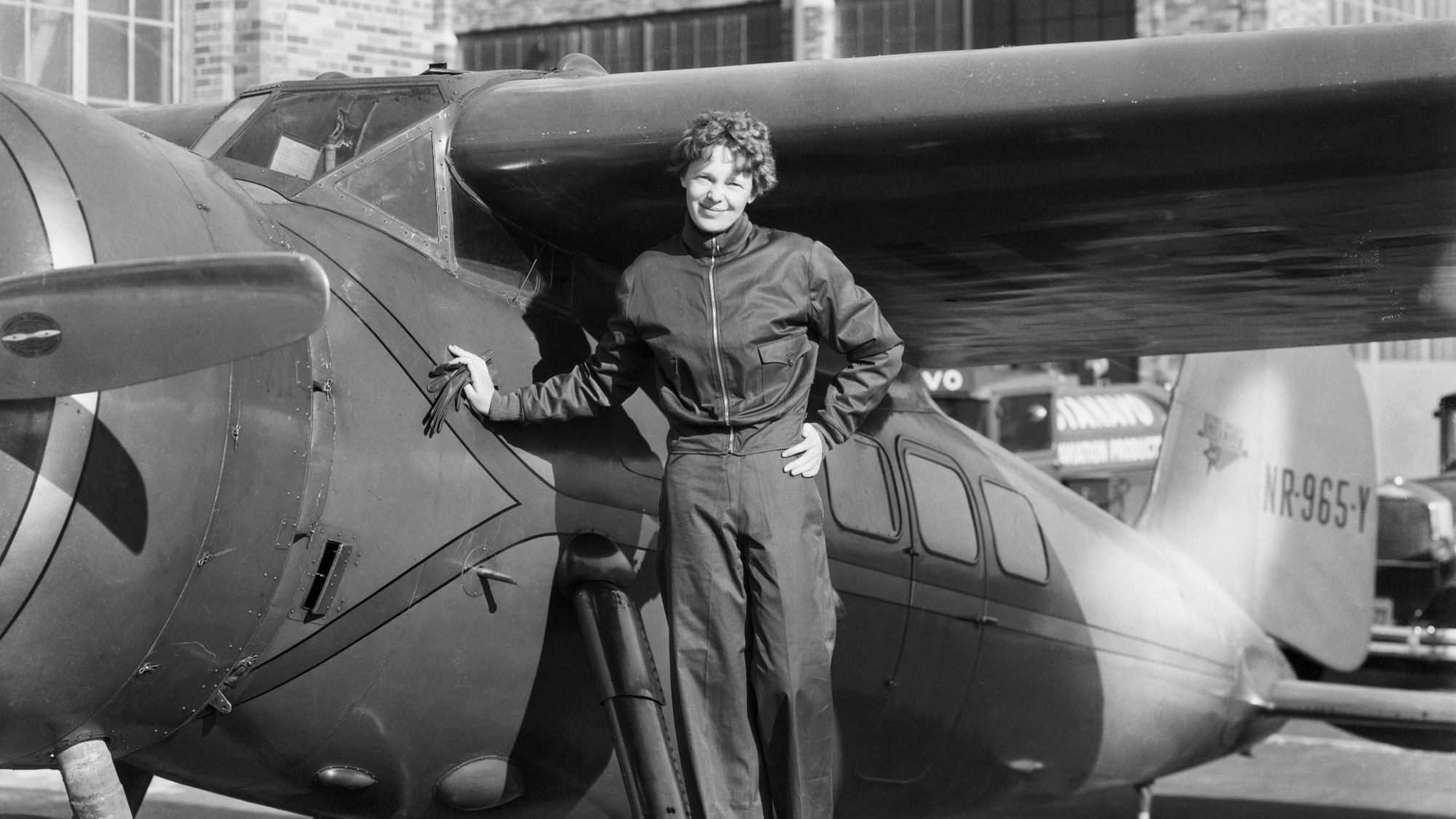 ‘Conspiracy theories about her disappearance do a disservice’
‘Conspiracy theories about her disappearance do a disservice’Instant Opinion Opinion, comment and editorials of the day
